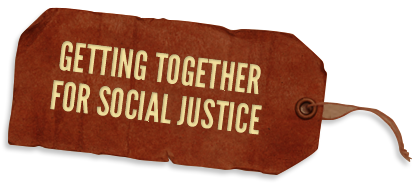Adapted from Allan Creighton
Tell the group that you are going to read a series of statements and that each male to whom a statement applies should stand up after that statement is read. Tell the group that every man and young man is being asked to participate. Those who are physically unable to stand may raise their hand to indicate that they are part of the group standing.
Each participant should decide for themselves whether the statement applies to them or not.
If a man or young man is unwilling to stand for a particular statement that applies to them they may pass for that statement but should notice any feelings they have about not standing.
Explain that the exercise will be done in silence to allow participants to notice the feelings that come up during the exercise and to make it safer for all participants.
After a statement is read and people have stood for a few moments, ask participants to sit down and read the next statement.
Men’s Questions
(Please stand silently if)
1. You ever worried you were not tough enough or exercised to make yourself tougher?
2. You have ever been told to act like a man?
3. You were ever told not to cry?
4. You were ever called a wimp, queer, or fag?
5. You were ever hit by a person older than you?
6. You ever stopped yourself from showing affection, hugging, or touching another man because of how it might look?
7. You have ever been forced to fight, or were in a fight because you felt you had to prove you were a man?
8. You were ever physically injured by another person?
9. You were ever touched in a way you didn’t like by an older person?
10. you were ever in a sport, in the military, or in any other program where you were taught to hide your feelings and to hurt other people?
11. You ever got so mad that, while driving, you drove fast or lost control of the car?
12. You ever felt like blowing yourself away?
13. You ever drank or took other drugs, overate, underrate, or did something dangerous to cover your feelings or hide pain?
14. You ever hurt another person physically or sexually?
After the exercise ask people to pair up to talk about what feelings and thoughts came up for them participating in the exercise.
Reassemble the group and facilitate a group discussion of the feelings, thoughts, reflections, and insights that people want to share.
This is not a stand alone exercise. It should only be conducted in the context of a workshop or talk on sexism, power, violence, and safety that allows the group to process the feelings, thoughts, and issues which arise from participating in the exercise.
Resources
For further information on these issues and slightly different versions of this exercise see Men’s Work: How to Stop the Violence that Tears Our Lives Apart by Paul Kivel (Hazelden 1992/98), Young Men’s Work: Stopping Violence and Building Community by Allan Creighton and Paul Kivel (Hazelden, 1998), and Helping Teens Stop Violence: A Practical Guide for Parents, Counselors and Educators by Allan Creighton with Paul Kivel (Hunter House Publishers 1992).
1990 Allan Creighton and 1998 M. Nell Myhand and Paul Kivel, adapted in Young Women’s Lives: Building Self-Awareness for Life. M. Nell Myhand and Paul Kivel. Center City, MN: Hazelden, 1998
Please send comments, feedback, resources, and suggestions for distribution to paul@paulkivel.com. Further resources are available at www.paulkivel.com.
All articles may be quoted, adapted, or reprinted only for noncommercial purposes and with an attribution to Paul Kivel, www.paulkivel.com. Creative Commons Attribution – Noncommercial 3.0 United States License. To view a copy of this license, visit here.
